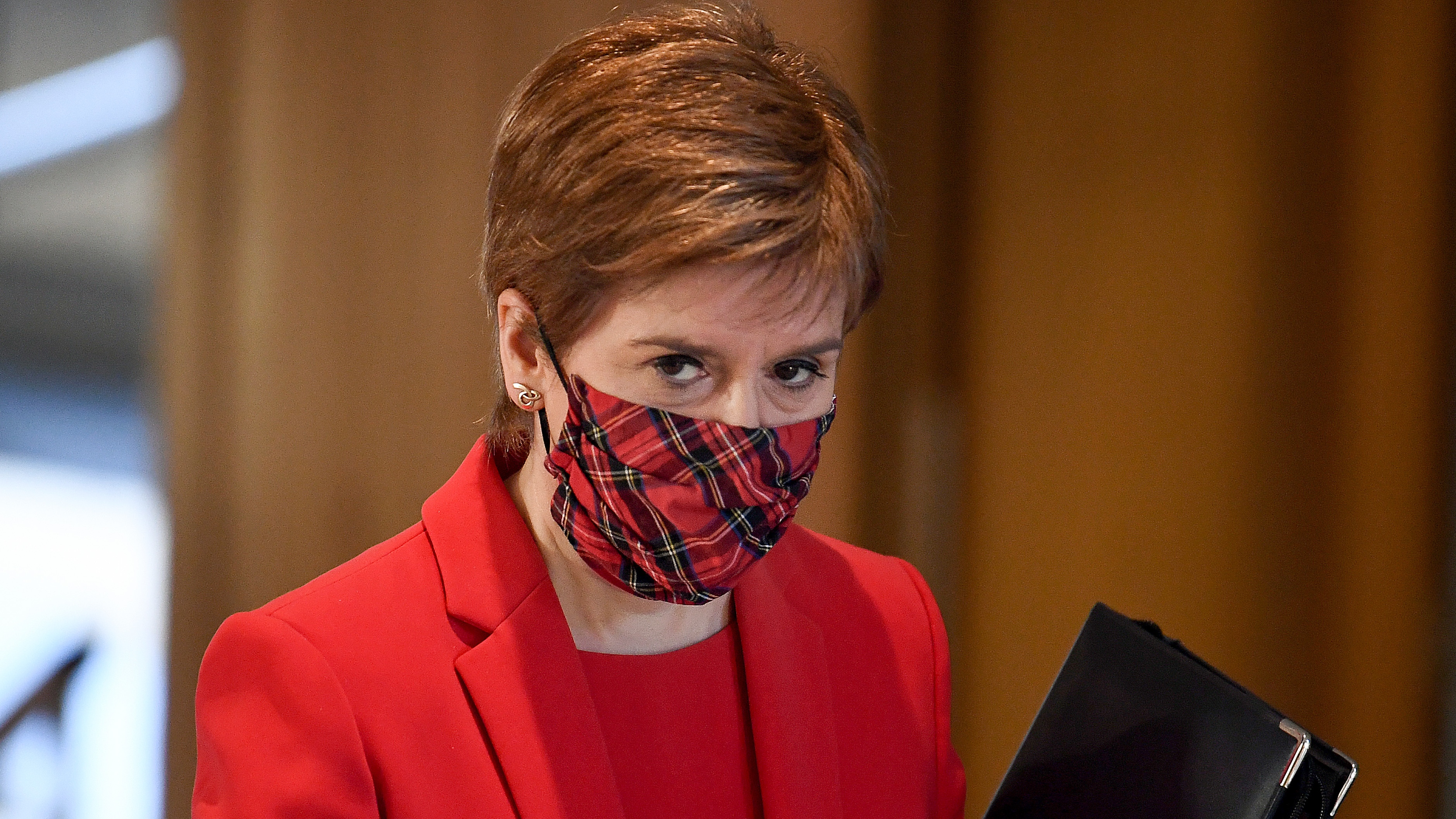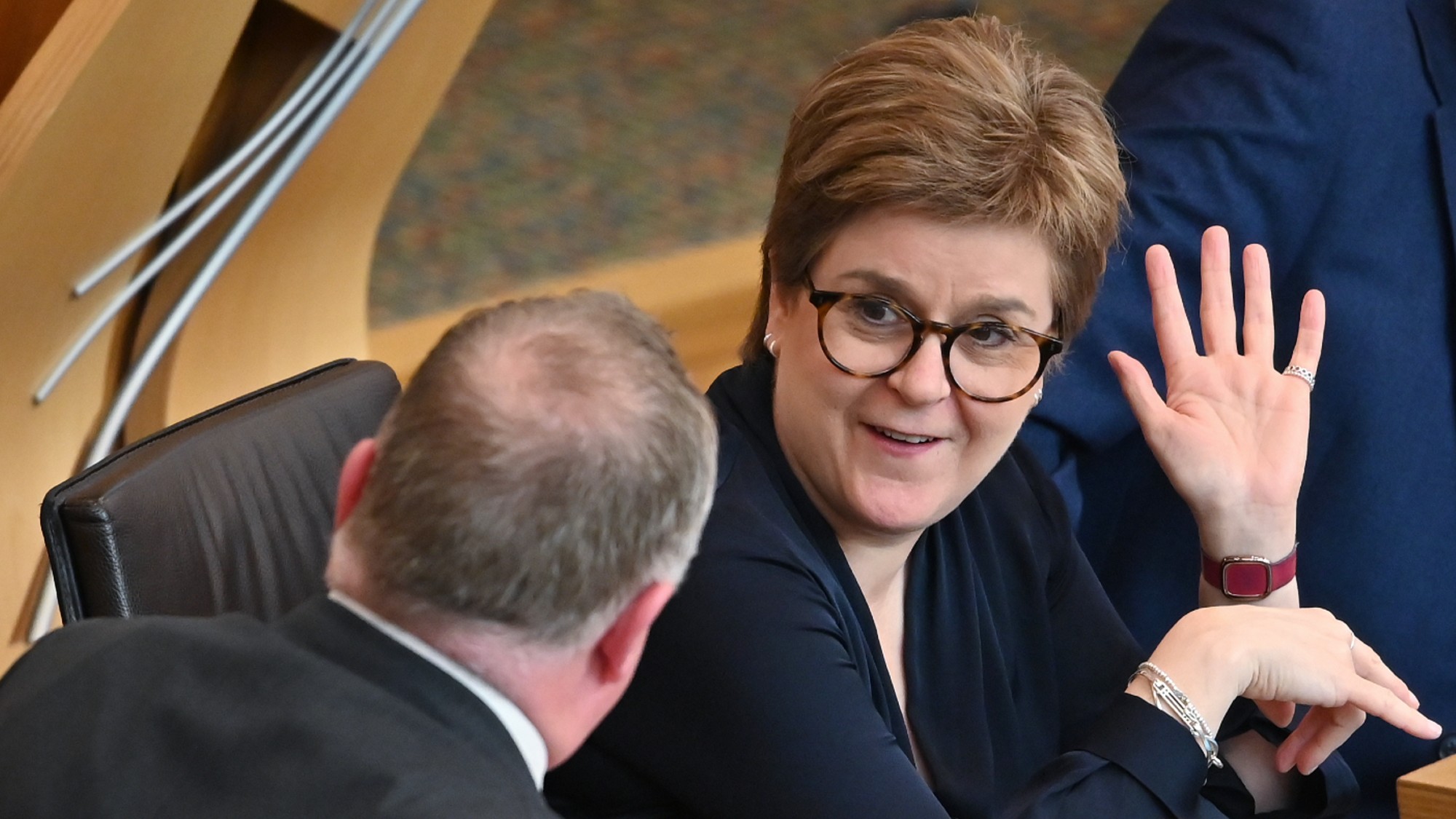Is it fair for Scots to argue for independence based on pandemic response?
Boris Johnson heads north of the border as calls for second referendum grow

A free daily email with the biggest news stories of the day – and the best features from TheWeek.com
You are now subscribed
Your newsletter sign-up was successful
Boris Johnson is visiting Scotland today as calls grow for a second independence referendum amid anger at the government’s handling of the Covid-19 pandemic.
The prime minister “emphasise[d] the strength of the UK working together in the fight against Covid-19” with a focus on the successful vaccination campaign, the BBC reports. But independence campaigners sense an opportunity.
Johnson’s visit to Scotland comes after months of polls that suggest “support for Scottish independence is higher than that for staying in the UK”, writes BBC political correspondent Nick Eardley. Scots are unhappy with “the way the pandemic has been handled”, he adds, with voters voicing more support for decisions made by First Minister Nicola Sturgeon than for Johnson.
The Week
Escape your echo chamber. Get the facts behind the news, plus analysis from multiple perspectives.

Sign up for The Week's Free Newsletters
From our morning news briefing to a weekly Good News Newsletter, get the best of The Week delivered directly to your inbox.
From our morning news briefing to a weekly Good News Newsletter, get the best of The Week delivered directly to your inbox.
An Ipsos Mori poll for BBC Scotland in November found that just 25% of people in Scotland believe that Westminster has handled the pandemic well, while 55% believe that it has done badly. By comparison, 72% felt that the Scottish government has handled the coronavirus crisis well, while just 15% think it has done so badly.
Sturgeon’s own approval ratings also remain high - with 74% of Scots believing she is doing a good job compared to just 9% who back Johnson’s premiership - despite her this week taking responsibility for “bad judgement” throughout the pandemic.
“These decisions were mine and I take responsibility for them,” she said during a daily press briefing. “Some things like the nature of asymptomatic transmission were an underdeveloped part of our scientific thinking [early in the pandemic].”
Data released by the National Records of Scotland reveal that the country last year recorded its highest number of peacetime excess deaths since 1891, when “Russian flu” contributed to 9,253 excess deaths.
A free daily email with the biggest news stories of the day – and the best features from TheWeek.com
Last year saw 6,324 excess deaths, 11% higher than the five-year average, with Sturgeon forced to defend her devolved government in November when death rates rose higher in Scotland than in England.
Claiming it was “too soon” to compare data, the first minister told The Andrew Marr Show that over the course of the whole pandemic, the death rate in Scotland has been “quite significantly lower” than England and Wales.
However, some voters believe that full independence from Westminster would bolster the Scottish government’s ability to handle the crisis even more.
In September, a new convert to the pro-independence camp told The Guardian: “I’ve never been a supporter of the SNP or a massive advocate for Sturgeon, but when she appeared on those daily briefings there was an honesty that shone through.
“Independence scares me. But the current political stagnation is worse.”
Sorcha Bradley is a writer at The Week and a regular on “The Week Unwrapped” podcast. She worked at The Week magazine for a year and a half before taking up her current role with the digital team, where she mostly covers UK current affairs and politics. Before joining The Week, Sorcha worked at slow-news start-up Tortoise Media. She has also written for Sky News, The Sunday Times, the London Evening Standard and Grazia magazine, among other publications. She has a master’s in newspaper journalism from City, University of London, where she specialised in political journalism.
-
 Political cartoons for February 19
Political cartoons for February 19Cartoons Thursday’s political cartoons include a suspicious package, a piece of the cake, and more
-
 The Gallivant: style and charm steps from Camber Sands
The Gallivant: style and charm steps from Camber SandsThe Week Recommends Nestled behind the dunes, this luxury hotel is a great place to hunker down and get cosy
-
 The President’s Cake: ‘sweet tragedy’ about a little girl on a baking mission in Iraq
The President’s Cake: ‘sweet tragedy’ about a little girl on a baking mission in IraqThe Week Recommends Charming debut from Hasan Hadi is filled with ‘vivid characters’
-
 Local elections 2026: where are they and who is expected to win?
Local elections 2026: where are they and who is expected to win?The Explainer Labour is braced for heavy losses and U-turn on postponing some council elections hasn’t helped the party’s prospects
-
 How corrupt is the UK?
How corrupt is the UK?The Explainer Decline in standards ‘risks becoming a defining feature of our political culture’ as Britain falls to lowest ever score on global index
-
 The high street: Britain’s next political battleground?
The high street: Britain’s next political battleground?In the Spotlight Mass closure of shops and influx of organised crime are fuelling voter anger, and offer an opening for Reform UK
-
 ‘It’s hard not to feel for the distillers’
‘It’s hard not to feel for the distillers’Instant Opinion Opinion, comment and editorials of the day
-
 Is a Reform-Tory pact becoming more likely?
Is a Reform-Tory pact becoming more likely?Today’s Big Question Nigel Farage’s party is ahead in the polls but still falls well short of a Commons majority, while Conservatives are still losing MPs to Reform
-
 Taking the low road: why the SNP is still standing strong
Taking the low road: why the SNP is still standing strongTalking Point Party is on track for a fifth consecutive victory in May’s Holyrood election, despite controversies and plummeting support
-
 Nicola Sturgeon's memoir: making the personal political
Nicola Sturgeon's memoir: making the personal politicalTalking Point Former Scottish first minister attempts to set record straight in 'Frankly' but does she leave more questions than answers?
-
 What difference will the 'historic' UK-Germany treaty make?
What difference will the 'historic' UK-Germany treaty make?Today's Big Question Europe's two biggest economies sign first treaty since WWII, underscoring 'triangle alliance' with France amid growing Russian threat and US distance